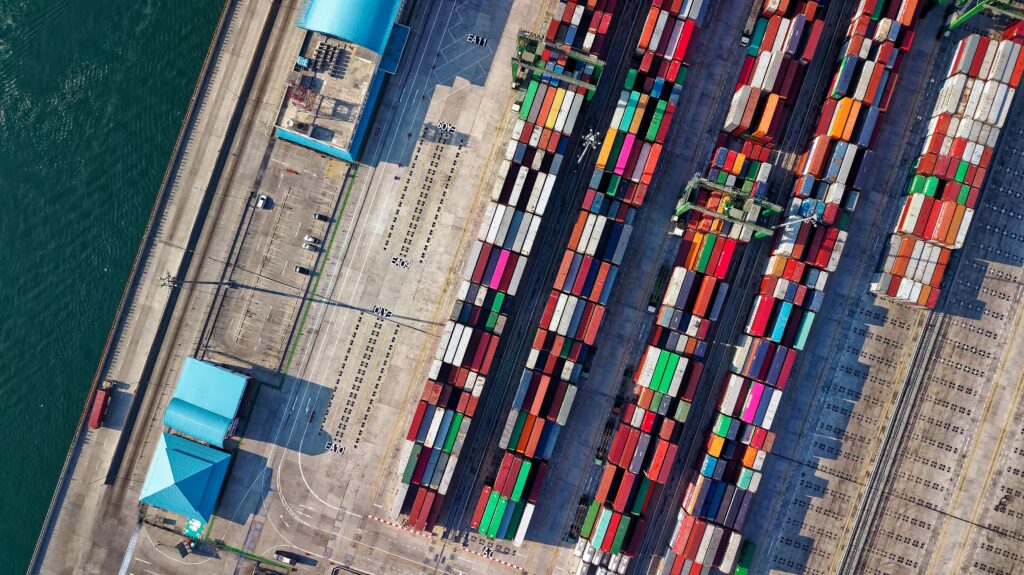Navigating the Road Ahead, Exploring Career Paths in Transportation and Logistics
Welcome to the dynamic world of transportation and logistics, where each shipment, delivery, and journey is critical to keeping commodities flowing and businesses thriving. In this comprehensive guide, we’ll look at the various and important occupations in the transportation and logistics business, including truck drivers, delivery drivers, warehouse workers, and logistics coordinators.

Understanding the Transportation and Logistics Industry
The transportation and logistics business is the foundation of global commerce, responsible for the movement and administration of products and materials from point of origin to destination. Transportation and logistics experts play an important role in assuring the efficient and timely delivery of commodities to customers and businesses all over the world, from the highways and trains that connect continents to the warehouses and distribution centres that serve as activity hubs.
Exploring Career Paths in Transportation and Logistics
Truck Drivers: The duties of a truck driver include driving large vehicles over long miles, delivering cargo to clients, and making sure shipments arrive on schedule and safely. Truck drivers are essential to maintaining the flow of supply chains and satisfying consumer demand, whether they are operating delivery trucks, tractor-trailers, or specialty vehicles.
Delivery Drivers: Delivery drivers are responsible for delivering products to customers’ residences or places of business from warehouses or distribution centres. Delivery drivers must deliver goods on time and in good shape, navigate local roads and neighborhoods with efficiency, and serve customers well, whether they are delivering packages, groceries, or meals.
Workers in warehouses: Warehouse workers perform a range of duties, including receiving, storing, picking, packing, and shipping items, and are vital to the efficient operation of distribution centres and logistics facilities. Workers in warehouses, from order pickers and packers to forklift operators and material handlers, are essential to inventory management, order fulfilment, and the smooth flow of goods through the supply chain.
Coordinators of Logistics: Organizing, organizing, and maximizing the flow of materials and goods along the supply chain are the duties of logistics coordinators. Coordinating with suppliers and carriers, monitoring inventory levels, planning shipments, and managing transportation routes are all tasks that logistics coordinators perform to keep logistics operations running smoothly and economically.
Embracing Emerging Trends in Transportation and Logistics
Technology Integration: In the transportation and logistics sector, technology is becoming more and more important in streamlining processes and boosting productivity. Technology helps businesses to optimize their supply chains, cut expenses, improve visibility, and gain control over them. Examples of this include route optimization, vehicle tracking systems, warehouse management software, and inventory tracking solutions.
Boom in e-commerce: As e-commerce has grown, there has been a sharp increase in the need for logistics and transportation services as customers want their online purchases to arrive quickly, easily, and conveniently. Transport and logistics firms are modifying their tactics and making infrastructural investments in response to the changing demands of online buyers, as it is anticipated that e-commerce sales will continue to rise.
Sustainability Initiatives: Transportation and logistics firms are focusing more on cutting their carbon footprints and implementing sustainable practices as a result of increased concerns about climate change and environmental sustainability. Sustainability initiatives are a driving force behind innovation and a transformative force in the transportation industry. These range from investing in fuel-efficient cars and alternative fuels to optimizing transportation routes and introducing green packaging solutions.
Essential Skills for Success in Transportation and Logistics
Attention to Detail: Paying close attention to detail is essential in a high-pressure, high-speed setting like transportation and logistics to guarantee precision and dependability. In order to prevent costly errors, experts need to be precise in their work when examining goods, inspecting vehicles, or validating shipping paperwork.
Time management: In the transportation and logistics industries, time management is critical to optimizing productivity and fulfilling deadlines. To guarantee that operations operate smoothly and deliveries are produced on time, specialists in logistics must effectively manage resources, prioritise activities, and adjust to changing demands. This applies to scheduling shipments, planning delivery routes, and coordinating logistics operations.
Solving issues Skills: Individuals working in transportation and logistics need to be skilled in recognising and addressing problems that come up in the course of their jobs. To keep operations running smoothly and reduce supply chain disruptions, professionals need to be able to think fast, weigh their alternatives, and put efficient ideas into action when faced with challenges like traffic jams, broken equipment, or conflicting schedules.
Communication Skills: Coordinating logistics operations, working with colleagues, and delivering top-notch customer service all depend on effective communication. To make sure that everyone is aware and on the same page, professionals need to communicate clearly, succinctly, and promptly with drivers, warehouse employees, suppliers, and customers.
A plethora of opportunities exist in the transport and logistics sector for those looking for exciting and fulfilling jobs in a vital and fast-paced business. Whether you work in a warehouse, drive a truck, deliver parcels or oversee logistics operations, the transportation and logistics sector is essential to the smooth operation of organizations and the flow of commodities. You can start a rewarding and prosperous career in logistics and transportation by embracing new trends, developing key competencies, and cultivating a customer-centric perspective.
